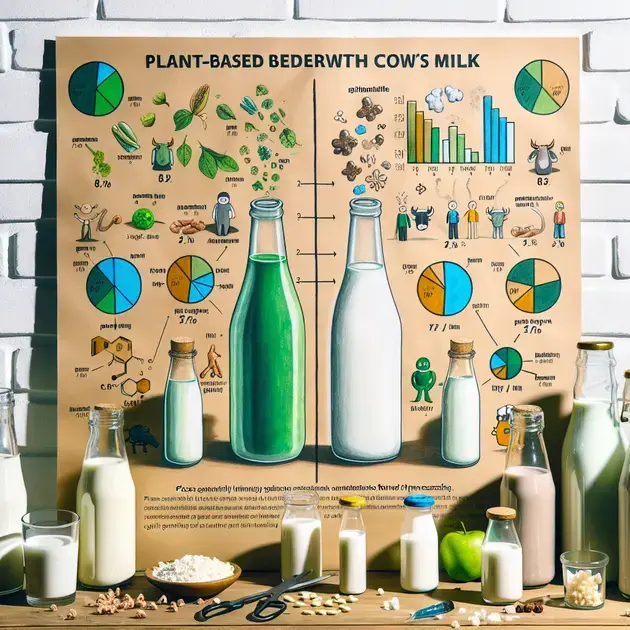“`html
Limitations of Plant-Based Drinks: A Study on Protein Quality Compared to Cow’s Milk
A new study highlights a significant concern regarding the nutritional profile of plant-based drinks: they often fall short in protein content and essential amino acids when compared to traditional cow’s milk. This deficiency is primarily attributed to the extensive processing these beverages undergo, which can degrade the quality of the proteins contained within.
Plant-based drinks, made from ingredients such as soy, almond, oat, and coconut, have gained popularity as alternatives to dairy milk. They are often marketed as healthier and more sustainable options. However, consumers may not be fully aware of the nutritional trade-offs involved. While these drinks can be lower in calories and saturated fat, the study indicates they may lack the complete protein profile that is present in cow’s milk, which contains all the essential amino acids necessary for human health.
The processing methods employed in the production of plant-based drinks can lead to chemical reactions that not only reduce protein quality but also alter the product’s overall nutritional value. These reactions can break down proteins into smaller peptides or amino acids, potentially diminishing their efficacy and resulting in a loss of bioavailability. Furthermore, the study points to the generation of new substances during processing that may raise health concerns, although further investigation is needed to understand the implications of these changes fully.
Moreover, the pursuit of creating palatable and shelf-stable plant-based drinks often leads manufacturers to add sugars, flavors, and stabilizers, which can mask the nutritional deficiencies while appealing to consumers’ taste preferences. This trend underscores the importance of scrutinizing ingredient labels for additives that may detract from the overall health benefits of these beverages.
In light of this study, consumers seeking to replace cow’s milk with plant-based options should consider fortifying their diets with additional sources of protein and essential amino acids. Foods such as legumes, nuts, seeds, and whole grains can complement plant-based drinks and help achieve a balanced nutritional intake.
The findings of this research serve as a crucial reminder for both consumers and manufacturers: while plant-based drinks offer an alternative to dairy, it’s vital to approach them with a mindful understanding of their potential nutritional limitations. As the demand for plant-based products continues to rise, ongoing research and development will be essential to improve the quality and nutritional profiles of these beverages, ensuring they can serve as viable options in a balanced diet.
A recent study on plant-based beverages has uncovered a prevalent issue: they have significantly lower levels of proteins and essential amino acids when compared to cow’s milk. This discrepancy can be attributed to the extensive processing these beverages undergo, which leads to chemical reactions that diminish the quality of the proteins present in the final product. In certain instances, this processing may even result in the formation of potentially harmful substances.
“`
